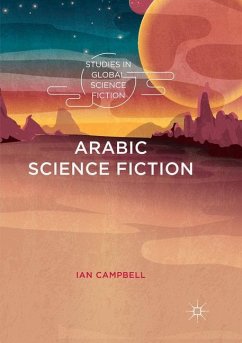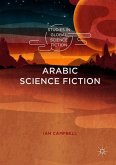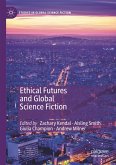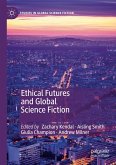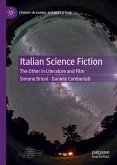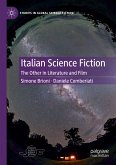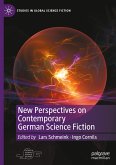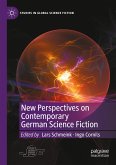This book traces the roots of Arabic science fiction through classical and medieval Arabic literature, undertaking close readings of formative texts of Arabic science fiction via a critical framework developed from the work of Western critics of Western science fiction, Arab critics of Arabic science fiction and postcolonial theorists of literature. Ian Campbell investigates the ways in which Arabic science fiction engages with a theoretical concept he terms "double estrangement" wherein these texts provide social or political criticism through estrangement and simultaneously critique their own societies' inability or refusal to engage in the sort of modernization that would lead the Arab world back to leadership in science and technology.
"For the scholar, Campbell's study does an excellent job of exploring how works of ASF from a range of different countries (Kuwait, Egypt, Syria) have approached the literary demands and political risks of writing speculative fiction meant to critique the existing regimes and cultural programs. ... scholars who want to understand the specific challenges of the emergence of science fiction in postcolonial settings would do well to explore Campbell's volume." (Steven Holmes, SFRA Review, Vol. 50 (1), 2020)
"Arabic Science Fiction responds to the growing interest that both readers and scholars have been experimenting towards for the last two decades of non-Western science-fiction. ... Arabic Science Fiction constitutes a valuable contribution to the growing field of science fiction postcolonial studies, opening the path for more widespread exploration of the genre, and perhaps eventually encouraging the translation of a body of fiction unheard of in the West." (Erica Couto-Ferreira, Journal of Science Fiction, Vol. 3 (3), December, 2019)
"Arabic Science Fiction remains a significant pioneering work. It contains many interesting analyses and genuinely insightful arguments. Along with earlier research, it definitely sets the stage for further engagement in the field. And for this reason, I think it should be on the bookshelf of anyone interested in the topic." (Musab Bajaber, Science Fiction Studies, Vol. 46, 2019)
"Arabic Science Fiction responds to the growing interest that both readers and scholars have been experimenting towards for the last two decades of non-Western science-fiction. ... Arabic Science Fiction constitutes a valuable contribution to the growing field of science fiction postcolonial studies, opening the path for more widespread exploration of the genre, and perhaps eventually encouraging the translation of a body of fiction unheard of in the West." (Erica Couto-Ferreira, Journal of Science Fiction, Vol. 3 (3), December, 2019)
"Arabic Science Fiction remains a significant pioneering work. It contains many interesting analyses and genuinely insightful arguments. Along with earlier research, it definitely sets the stage for further engagement in the field. And for this reason, I think it should be on the bookshelf of anyone interested in the topic." (Musab Bajaber, Science Fiction Studies, Vol. 46, 2019)

